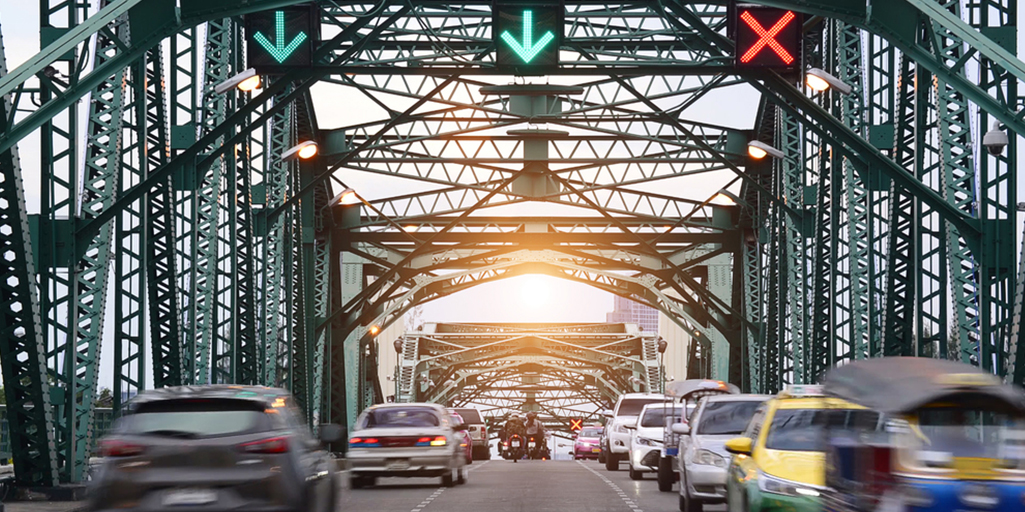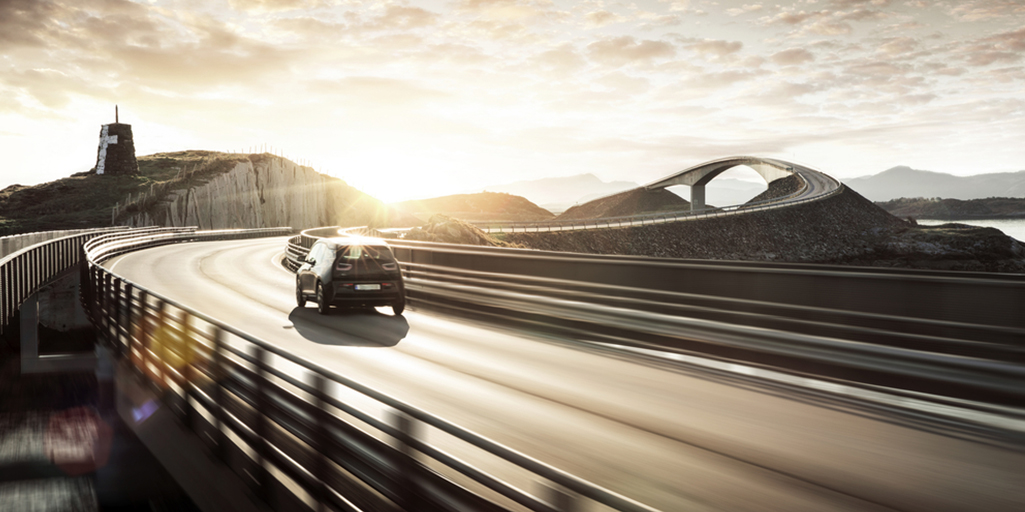We use cookies and other proprietary and third-party technologies to make our website work correctly and securely. We also use them to analyse user browsing and be able to adapt advertising to your tastes and preferences. Cookies Policy.
At one time or another you’ve probably crossed (or have seen) one of those bridges that seem to shake in the wind. And it’s possible that you asked yourself “Am I about to fall into the void?” Or maybe you’ve found yourself in the middle of a bridge during a traffic jam and wondered “With all of us ,stuck here won’t the total weight be too much for the bridge to support?” The fact is that bridges are rather resistant infrastructures designed to support enormous weights. But is it possible to calculate how many cars a bridge can sustain?

Considerations when building a bridge
The first thing to remember is that not all bridges are alike. A suspension bridge is not the same as an arched bridge or a truss bridge. And of course none of them has anything to do with the bridge of some eyeglasses. A bridge is an infrastructure that has been used by human beings for some 10,000 years and which, from the time of its creation, has helped us to get around all kinds of obstacles: watery, air and solid.
When constructing a bridge, we begin from top to bottom (the design) and finish from bottom to top (the construction) so that it can carry out its primary function: overcoming an obstacle and making it possible to move a load along a road from one side of the bridge to the other. Thus one of the most crucial missions when designing and building a bridge is to know the amount and type of load that it must support.
By default, the building of a bridge must take into account two kinds of forces: the ones that the infrastructure will have to support. On the one hand, tension, a force that will try to stretch out a certain section of the bridge. On the other, compression, a force that will try to shorten a certain section of the structure. At the same time, it must be taken into account that the structure of the bridge will be submitted to the force of the weight caused by gravity. This weight will not only be that of the bridge with all its components (paving, lighting, barriers…) but also that of all the loads that it will have to support. That’s where the weight of the vehicles comes into play.

The weight of a car
Most cars weigh between 1,000 and 2,000 kilos. But a truck can range from 18 to 32 tons. Bring together a good number of them and we’re talking about a very considerable total weight. Add to this the possibility that the bridge might need to accommodate something even heavier like a tank.

But how many cars can a bridge support?
In the end, the answer gets much more complicated. What is certain is that in the construction, the applicable norms are not retroactive. For that reason, the weight that new bridges being built today must support is not the same as those built 20 years ago. At present, the Instruction about the actions to consider in building highway bridges, published by the Spanish Transport MInistry, establishes that bridges must prove their resistance under certain set conditions.
These conditions foresee the use of vehicles of up to 60 tons, upon which certain loads are distributed (which can reach almost one ton per square meter). If we consider a car with a weight of 2.000 kilos, this means that on some bridges there could be almost half a car for each square meter. Keeping in mind that a car occupies more than two (and almost always more than four) square meters, the answer is that a bridge can support more cars than could actually fit on it.

Notice: Trying to access array offset on value of type null in /DATA/sites/ontheroadtrends.com.preproduccion.com/webspace/wp-content/themes/ontheroad2023/templates/newsletter.php on line 3
Notice: Trying to access array offset on value of type null in /DATA/sites/ontheroadtrends.com.preproduccion.com/webspace/wp-content/themes/ontheroad2023/templates/newsletter.php on line 4
Notice: Trying to access array offset on value of type null in /DATA/sites/ontheroadtrends.com.preproduccion.com/webspace/wp-content/themes/ontheroad2023/templates/newsletter.php on line 5